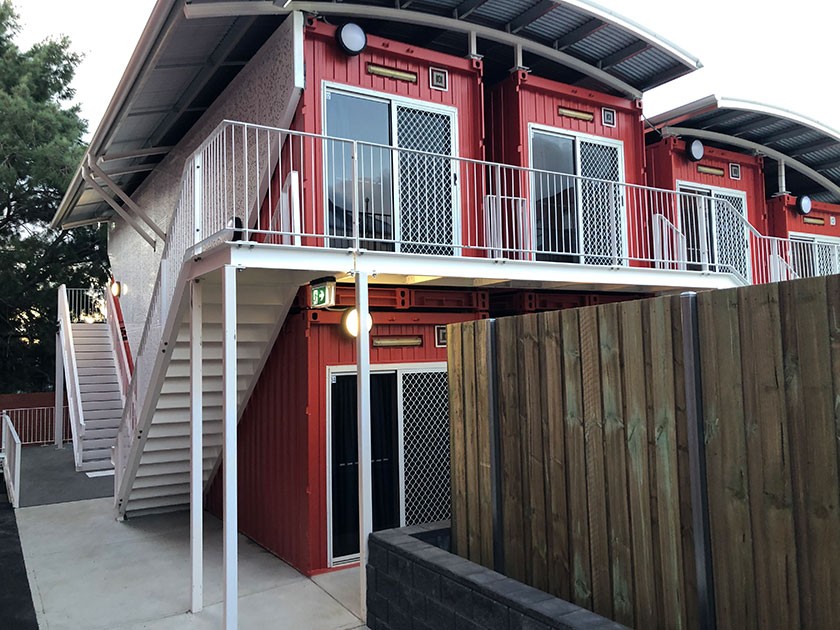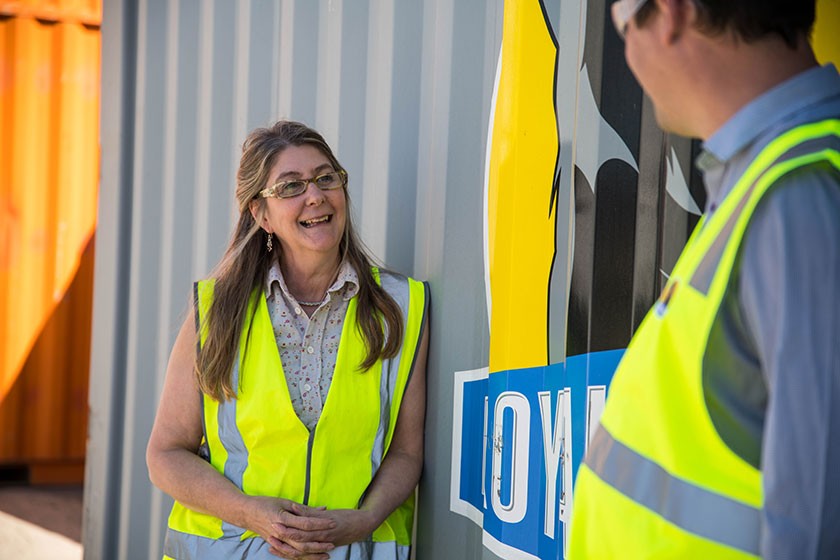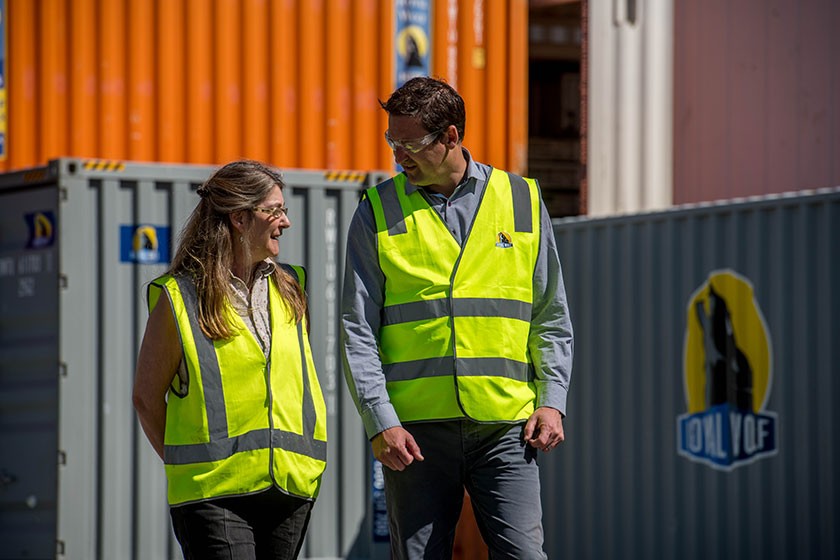

Royal Wolf Business Development Manager (Tasmania) Michael Nicholson. Photo: Alastair Bett
By Geoff Shearer
As Tasmania grapples with a snowballing housing crisis, shipping containers are being heralded, literally, as building blocks of hope.
An innovative venture between Tasmania’s State Government and national shipping container company Royal Wolf is giving shipping containers a second life as crisis accommodation.
The 2019 Rental Affordability Index (RAI) report, released in November, confirms Hobart is continuing a trend, started about four years ago, as the nation’s least affordable city. Now, in the midst of COVID-19, that stress is only amplified.
Housing and Human Services Minister Roger Jaensch says the Tasmanian Government has a multi-faceted approach to tackling housing stress and homelessness, but less than a year ago it became obvious a quick response was needed on the frontline.
"Heading into last winter we became aware that further investment was needed,” he says. “By working with the sector and partnering with local providers, we developed a plan to increase the capacity for all groups of people who require access to crisis accommodation."
The immediate need was for a rapid increase in the number of emergency and short-term accommodation options for homeless people, particularly in the Hobart region. That’s where the quick response from Royal Wolf came in.
The solution was 18 shipping containers fitted out as single-person pods to be used by Hobart’s Bethlehem House, a homeless accommodation service for men; and 10 larger containers for use by the Hobart Women’s Shelter as crisis accommodation for women and children affected by domestic violence.
The Tasmanian Government commissioned the units, including a further seven units for the women’s shelter through another organisation, under its $5 million Emergency Homeless Response package. It is part of an eight-year $258 million Affordable Housing Strategy to create new permanent shelters and longer-term housing stock to address the state’s crisis.

The newly-constructed men’s pods at Bethlehem House. Photo: Royal Wolf
Royal Wolf Chief Executive Officer Neil Littlewood says the company was used to creating out-of-the-box solutions.
"Royal Wolf initially became involved in housing accommodation projects in Tasmania in the response to the University of Tasmania’s (UTAS) student accommodation shortage," he says.
"As a result of providing the university with an 180-bed student accommodation solution, the Tasmanian Government approached us to become involved in the Bethlehem (House) project which was to address the needs of men’s homelessness. This solution resulted in additional requests for the women’s crisis accommodation project."
Royal Wolf’s Business Development Manager for Tasmania, Michael Nicholson, says the company was keen from the outset to work on a solution for the State Government.
"The thing from this project that we’ve discovered is that you really can do anything. Whatever thoughts or ideas you might have, come speak to us because we can certainly roll something out," he says.
"Whether that’s on a small scale, or right through to large scale crisis accommodation or student accommodation, we’re there to find that solution for you. Tasmania is the proof that something like this can be done."
Bethlehem House Chief Executive Officer Stephanie Kirkman Meikle agrees.

The 18 shelters supplied to Bethlehem House were installed in April 2020. CEO Stephanie Kirkman Meikle says the project is a great initiative with great benefit for the Tasmanian community. Photo: Alastair Bett
"Tasmania’s always leading the way!” she says, with a smile. “This is one of a range of solutions. I think it works perfectly as a temporary solution."
Mrs Kirkman Meikle says the pod project was well-received by colleagues and peers at the recent Summer Forum (Homelessness, Housing and Mental Health: Crises and Opportunities) conference in Sydney.
She says the forum was a great opportunity to "get a feel for what interventions other people are doing" and how they are tackling the issue.
"[It] isn’t just of homelessness, but of supporting a person’s mental health and wellbeing at the same time," she says.

Bethlehem House CEO Stephanie Kirkman Meikle and Royal Wolf Business Development Manager Michael Nicholson. Photo: Alastair Bett
Mr Nicholson says his favourite moment so far in the container rollout was when the first unit was installed at Bethlehem House.
"Being there on the day, seeing it being put together like a Meccano set, and seeing the looks from people from outside how quickly the project was going together, was certainly a highlight for myself," he says, adding that his team at Royal Wolf can’t wait to see all the pods in place and being used.
"We’re really looking forward to having people living inside them. It will certainly be a warm feeling – not just for myself – but also for our whole team here in Tasmania, because it has been a team-driven project."
The project also involved the State Government passing a new piece of legislation which gives local councils power to approve and fast-track shipping containers as temporary housing.
The new planning directive was effected in early September last year and applies only to containers on land controlled by Housing Tasmania.